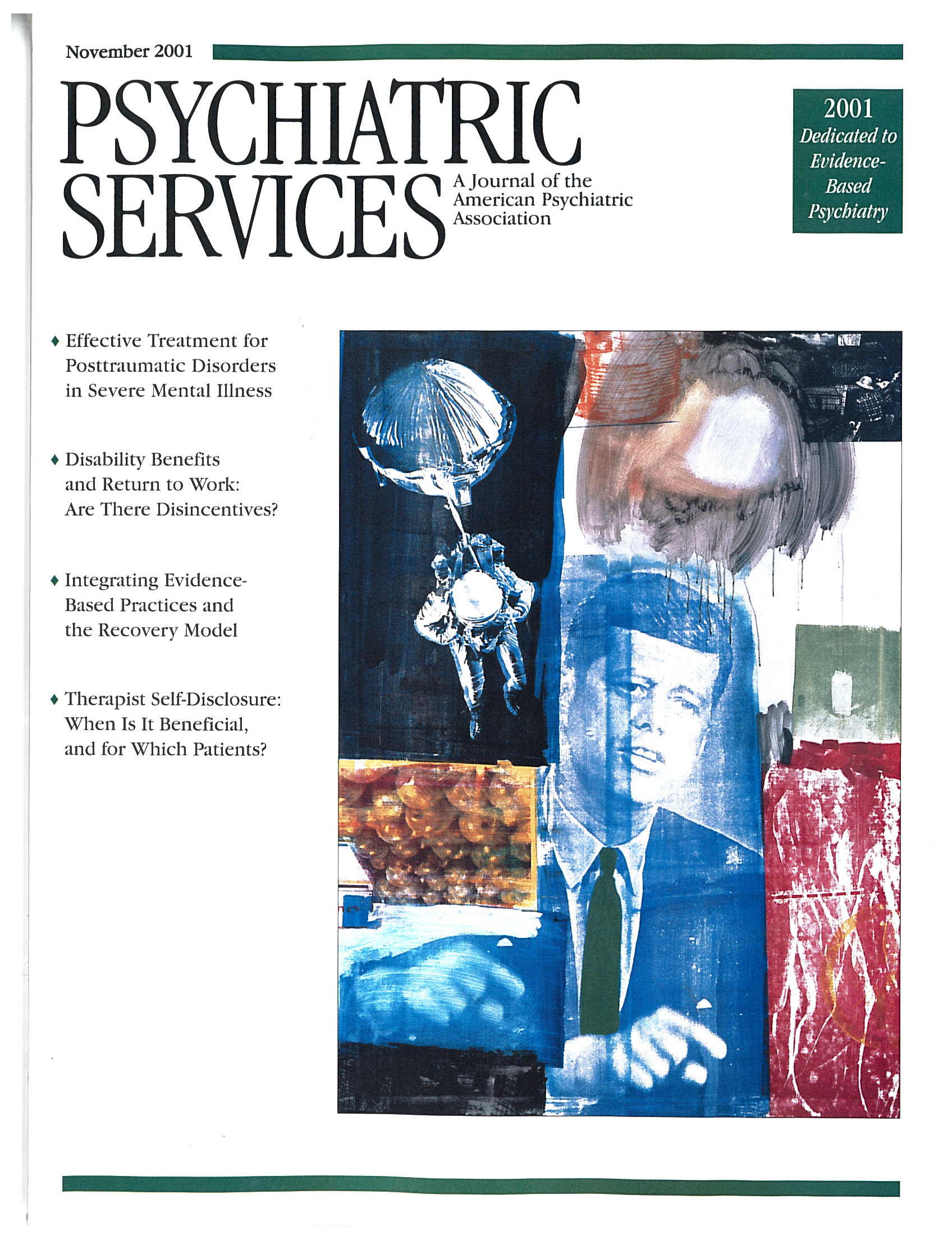Childhood Sexual Trauma and Psychosocial Functioning in Adults With Schizophrenia
Abstract
OBJECTIVE: This study explored the association between sexual abuse in childhood and the severity of psychosocial deficits in adults with schizophrenia. METHODS: The Quality of Life Scale, which assesses current interpersonal and work function, and the NEO personality inventory, which assesses personality dimensions relevant to social functioning, were administered to 54 individuals who had been diagnosed as having schizophrenia. Nineteen of the individuals reported having been sexually abused as children, and 35 reported no history of abuse. RESULTS: A multiple analysis of variance indicated that there were differences between the group of individuals who had a history of sexual trauma and the group that did not. Subsequent univariate analysis of variance indicated that the individuals with a history of abuse had poorer current role functioning and fewer of the basic psychological building blocks necessary for sustaining intimacy. They also demonstrated higher levels of neuroticism, which is a measure of vulnerability to emotional turmoil. The two groups did not differ in frequency of interpersonal contacts or level of extroversion. CONCLUSIONS: Sexual abuse in childhood is associated with poorer psychosocial functioning in adults with schizophrenia.



